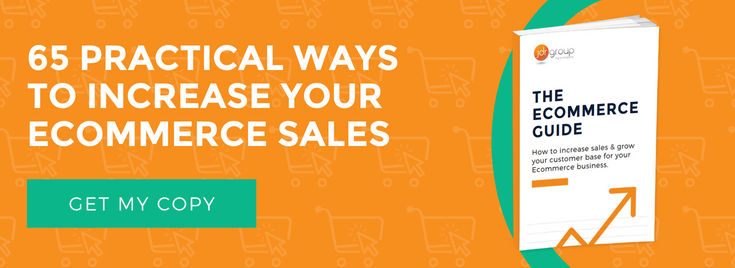How To Optimise Your Ecommerce Website For Better SEO

Not many sales are made by an online shop being the ‘Internet’s best kept secret’. It’s visibility on Google and other leading search engines, and the web traffic this brings, that delivers the sales you need to achieve your growth targets. Search Engine Optimisation (SEO) helps to fine-tune your ecommerce website for higher rankings on Google for important keywords – and it’s not just the bots that benefit. Your customers, too, will benefit from a better experience on-site, increasing your conversions and sales. Read on to find out more.
Keyword research and driving targeted traffic
In a nutshell, search engine optimisation is about researching the right keywords for your target buyers. Websites don’t ‘rank on Google’ per se, they just have greater or lesser visibility on the search engine results pages (SERPs) for various search terms, so you want to rank prominently for the search terms that your customers use when looking for products and services like yours.
It’s important to rank highly on Google (ideally on page one close to the top) for core keywords because this is what will drive targeted traffic – i.e. the people most likely to spend money on your website. So, how do you narrow down your choice of keywords for an ecommerce website?
Search volume
The search volume of a keyword is the average number of monthly searches for a particular search phrase. Ideally, you want to optimise your website for high-volume keywords, because these have the potential to drive the most traffic. However, high-volume keywords are also more competitive (see below), so most businesses balance their high-volume, high-competition keywords with lower-volume, niche keywords.
Keyword difficulty
Keyword difficulty is an indicator of competition for Google rankings for a particular keyword and is often scored between zero (easy) and 100 (super tough). The high-scoring keyword indicates stiff competition to compete with the existing search placeholders. You can rank for these keywords, yes, but you’ll need a high-quality website, an established brand reputation, good domain authority, and usually a fair few backlinks, too.
Search relevance
Relevance comes close to being the golden rule of SEO and measures how closely the search results relate to the user’s search query. The keywords you use have to be relevant to your target customers’ search intent. For example, if you optimise your website for a high volume keyword but it doesn’t reflect the services and products you have available on your site, then although you might get plenty of traffic, you won’t get many conversions.
Optimising your website structure and navigation for SEO
As well as choosing the right keywords to use in your content throughout your website, you also need to optimise your website structure and navigation menu for better search visibility. Mostly, this involves creating a website with clear architecture and navigation. This makes it easy for search engine bots to scan and rank your site for search relevance and also gives your customers an easier time when they arrive at your site. It’s the digital equivalent of having a well-ordered and signposted shop – it just makes good business sense.
Most modern websites are built around a hierarchy of core pillar pages, with numerous sub-pages and product categories branching off from these, to form a logical site structure and navigation framework.
Increasing Google rankings and conversions through smart content marketing
High-quality content is the blood and bones of search engine optimisation and determines not only where you rank on Google but also how effective you are at converting visitors into customers. Your webpage copy, blog articles, videos, and downloadable content are the digital assets that will help you build genuine brand authority, and trust and confidence in your buyers, while also differentiating you from competing businesses. Investing in regular, authoritative blog articles, keyword-driven landing pages and a supporting digital marketing strategy to maximise visibility for your content, is the fastest way to improve your Google rankings for core keywords.
Find out more
If you would like to know more about SEO and how to improve the visibility of your ecommerce website, please contact the team at JDR today by clicking here, or by calling 01332 343281.
Image Source: Canva



